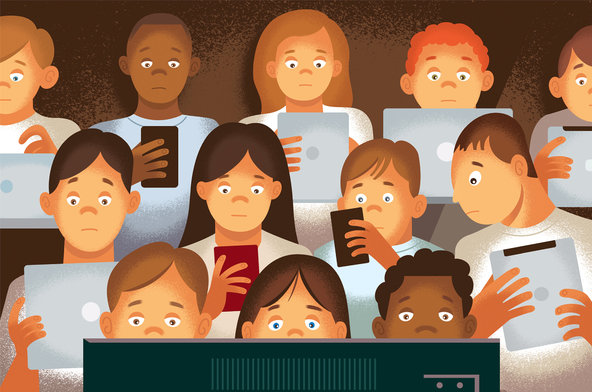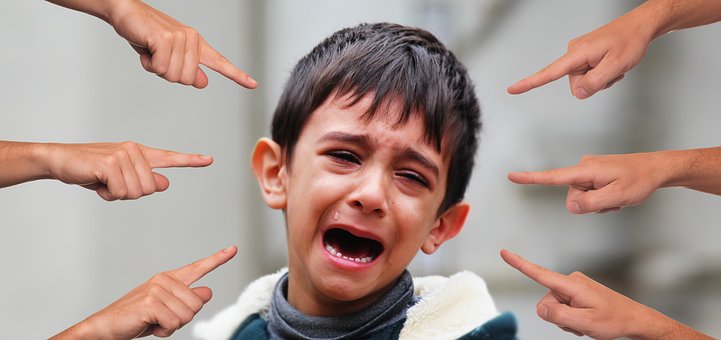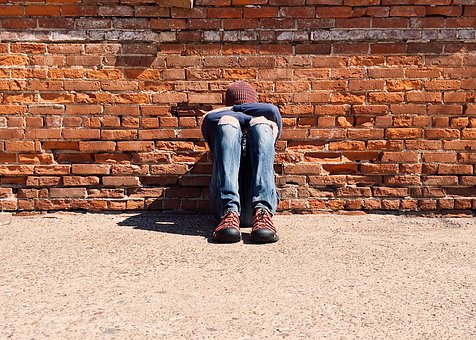Stress has significant negative effects on the physical and mental health of people, irrespective of gender, race, and age.Stress occurs when mental, emotional, and/or physical demands increase beyond the regulatory capacity of a person, and the impact may differ depending on the frequency, magnitude, and duration of the stress. While moderate levels of stress can be adaptive, in fact I would even say required for us to push our limits, stress persisting for long periods can have negative consequences on the well-being of a person.
When Akarsh reached class eight his parents started planning his future course of action. Coming from a family of high achievers his father was very clear that his son would go only to IIT and then to IIM or go abroad for a Master’s in Business Administration. School had also scheduled a counseling session for the 13 year olds where they went through an aptitude test to decide on their career goals. Now Akarsh came under tremendous pressure to fulfill the prophesies of the parents and the school counselor! Akarsh wants to be a kid, but he has to think about what he’s going to do 4 years from now.
Shreya’s social life was adding pressure to her. She would see pictures on Facebook and Instagram of her friends all out partying and she was not included and it waspainful. Before all the social media, we didn’t see pictures of everything people were doing without us. This left the once happy-go-lucky Shreya frequently in tears. She would say over and over, ‘I just feel so much pressure! I can’t be myself because I have to act mature.’ She won’t sleep at night because she’s worried about what someone will think of how she acted, and if it will wind up on Facebook.
Stress in Adolescents:-
Adolescence is defined as the period between childhood and adulthood, beginning with the onset of puberty and characterized by changes in hormonal levels and consequent physical, psychological, and social changes. Adolescence roughly corresponds to the period between 10 and 19 years though adolescence may extend up to 25 years of age in some cases.Adolescence is a unique and formative time. Multiple physical, emotional and social changes can make adolescents vulnerable to mental health problems. Promoting psychological well-being and protecting adolescents from adverse experiences and risk factors that may impact their potential to thrive are critical for their well-being during adolescence and for their physical and mental health in adulthood.
Adolescence is a crucial period for developing and maintaining social and emotional habits important for mental well-being. These include adopting healthy sleep patterns,taking regular exercise, developing interpersonal skills, problem solving and learning to manage emotions. Supportive environments in the family, at school and in the society are all very important. According to WHO an estimated 10–20% of adolescents globally experience mental health conditions, yet these remain underdiagnosed and undertreated.
There is a strong association between chronic stress and psychopathology in adolescence, with stress linked to depression, anxiety and other problems.
Akarsh and Shreya are just two examples of how our children are getting stressed out every day. There are many reasons for stress in in children, and pressure to perform academically and social media are two main reasons.
Reasons for Stress:-
Academic Performance: This is a major cause of stress among children. Coupled with high stake testing system it is a potent cocktail for stress among school goers. Children as young as 7-8 years old are seeing therapists with sleep and anxiety issues.
Over Stuffed Schedules: Activities like sports or art or music should help relieve stress, not add to it. Understand your child and take your cues from him. If your child starts a new sport or music lesson and starts becoming overwhelmed and stressed, it may be too much.
Fewer Healthy outlets for stress: Schools have slashed games periodsand they hardly have two classes in a week. As children go to higher classes those periods are also taken up for completing syllabus or revision work.
Media saturation and viewing adult content: Thanks to the 24-hour news cycle and constant connectivity, kids are exposed at a much younger age to terrifying news stories. And today’s young people see more than their share of violence and adult sexuality packaged as entertainment, often without their parents present, thanks to smartphones and tablets. And the use of electronic devices is skyrocketing.
Bullying and Teasing: As in the case of Shreya, social media plays a major role in this. Putting up messages and comments on social media platform goes viral with one click and stays on with the child for a long time to come.
Faster child development: Kindergarten is the new first grade. Till 30 years back kindergarten was for finger painting and blocks, making friends and sharing food. Today, kindergartners average 25 minutes of homework a day, while first and second graders spend more than an hour in doing home works.
Sleep deprivation: School pressures, after school activity and social mediaaffect the sleep pattern of children. Most children these days have at least one electronic device in the bedroom, which can cut a night’s sleep down by almost an hour. Even slight sleep loss affects memory, judgment, and mood.
Chronic illness: Asthma, obesity and behavioral and learning problems have increased over the years. According to one study ADHD among primary school children in India is 11.36%. We are seeing an increase in the number of ADHD and Autism cases. Missing school and play activities for doctor’s appointments, side effects from treatment, and not being able to do some things that other children do can be very stressful.
Family disruption: Family issues like parental illness, fight among parents or divorce can really stress out kids.
Parental stress: The family is a child’s stress buffer. But when a family struggles and can’t play that role, a child feels even more tension.
How can you tell if your child struggles with stress? You may think you’d know, but that’s not always the case. It often goes unnoticed.
Watch for these signs:
- Acting unusually irritable or moody
- Unexplained changes in school performance
- Withdrawing from friends
- Not participating in activities that he or she used to enjoy
- Unexplained physical symptoms, like frequent stomachaches or headaches.
- Sleeping much more or much less than usual
- Eating much more or less than usual
Everyone experiences stress and anxiety. It’s common, especially in childhood. But is the stress causing disruption in your child’s life? Is it lasting? … If your child has a stressful week, and the anxiety goes away once things have calmed down, that’s normal. But if the stress is significant and frequent or doesn’t go away, that’s when it’s time to seek help.
How to Help Your Child De-stress:
- Keep connected: The greatest way to increase resilience in kids is to stay connected with them. Make sure you have time every day when you put your phones and your devices away, and you’re talking to your kids and your kids are talking to you. While staying connected observe the following:
- Just be there: Kids don’t always feel like talking about what’s bothering them. Sometimes that’s OK. Let your kids know you’ll be there when they do feel like talking. Even when kids don’t want to talk, they usually don’t want parents to leave them alone. You can help your child feel better just by being there — keeping him or her company, spending time together. So if you notice that your child seems to be down in the dumps, stressed, or having a bad day — but doesn’t feel like talking — initiate something you can do together. Take a walk, watch a movie, kick around a ball, or bake some cookies. Isn’t it nice to know that your presence really counts?
- Notice out loud: Tell your child when you notice that something’s bothering him or her. If you can, name the feeling you think your child is experiencing. (“It seems like you’re still mad about what happened at the playground.”) This shouldn’t sound like an accusation (as in, “OK, what happened now? Are you still mad about that?”) It’s just a casual observation that you’re interested in hearing more about your child’s concern. Be sympathetic and show you care and want to understand.
- Listen to your child: Ask your child to tell you what’s wrong. Listen attentively and calmly — with interest, patience, openness, and caring. Avoid any urge to judge, blame, lecture, or say what you think your child should have done instead. The idea is to let your child’s concerns (and feelings) be heard. Try to get the whole story by asking questions like “And then what happened?” Take your time. And let your child take his or her time, too.
- Comment briefly on the feelings you think your child was experiencing: For example, you might say “That must have been upsetting,” “No wonder you felt mad when they wouldn’t let you in the game,” or “That must have seemed unfair to you.” Doing this shows that you understand what your child felt, why, and that you care. Feeling understood and listened to helps your child feel supported by you, and that is especially important in times of stress.
- Help your child think of things to do: If there’s a specific problem that’s causing stress, talk together about what to do. Encourage your child to think of a couple of ideas. You can start the brainstorming if necessary, but don’t do all the work. Your child’s active participation will build confidence. Support the good ideas and add to them as needed. Ask, “How do you think this will work?”
- Listen and move on: Sometimes talking and listening and feeling understood is all that’s needed to help a child’s frustrations begin to melt away. Afterward, try changing the subject and moving on to something more positive and relaxing. Help your child think of something to do to feel better. Don’t give the problem more attention than it deserves.
- Take it easy: Families are always running from one thing to another. Make sure your kids get regular, unstructured time at home when they can play, rest, read, or do whatever they feel like doing which is fun and stress free. All kids need breaks.
- Name stress and normalize it: Many younger kids do not yet have words for their feelings. If your child seems angry or frustrated, use those words to help him or her learn to identify the emotions by name. Putting feelings into words helps kids communicate and develop emotional awareness — the ability to recognize their own emotional states. Kids who can do so are less likely to reach the behavioral boiling point where strong emotions come out through behaviors rather than communicated with words.Tell them it’s ok to feel stressed and their body is reacting to it. Give them the reassurance.
- Stick to healthy routines: Like good nutrition and regular bedtimes. Stress busting food include Greens, Fish, Egg, Carrot, Milk,Yogurt, Soya bean, Nuts and whole grain. Avoid or restrict food like Caffeinated drinks, refined carbs like maida, processed food and sugar .
- Limit stress where possible: If certain situations are causing stress, see if there are ways to change things. For instance, if too many after-school activities consistently cause homework stress, it might be necessary to limit activities to leave time and energy for homework.
- Ask your pediatrician: For guidance or a referral for counseling if your child’s stress seems to be persistent and overwhelming.
- Take care of yourself and Model healthy coping strategies: Get yourself in check emotionally before you take care of your kids. When you ease your own stress, you boost your connection to your children.As parents, you are your children’s first teachers. They watch your behaviors and see what you do when you are stressed out. What are your go-to coping strategies? – Do you like to go to the gym? Knit? Do a crossword puzzle?The next time you use a coping skill, share that information with your child. Say it out loud. “I’m so stressed right now, and I just need a quick break. I’m going to knit for 10 minutes.”
There will always be stress, but it’s all about how you manage it. Parents can’t solve every problem as kids go through life. But by teaching healthy coping strategies, you’ll prepare your kids to manage the stresses that come in the future. The earlier your child can learn healthy coping skills, the bigger their repertoire of coping skills will be. With a good set of coping strategies, they can tackle stressful situations successfully.
























